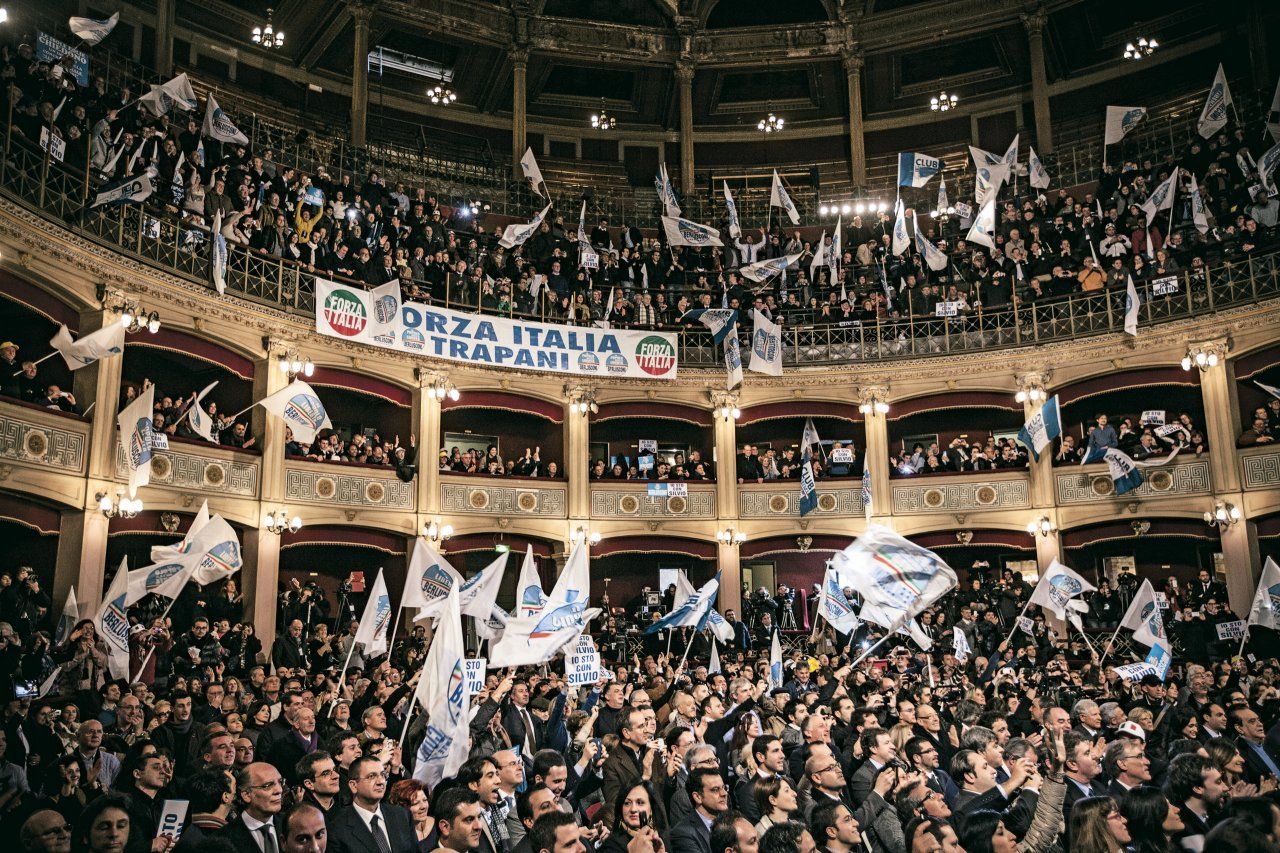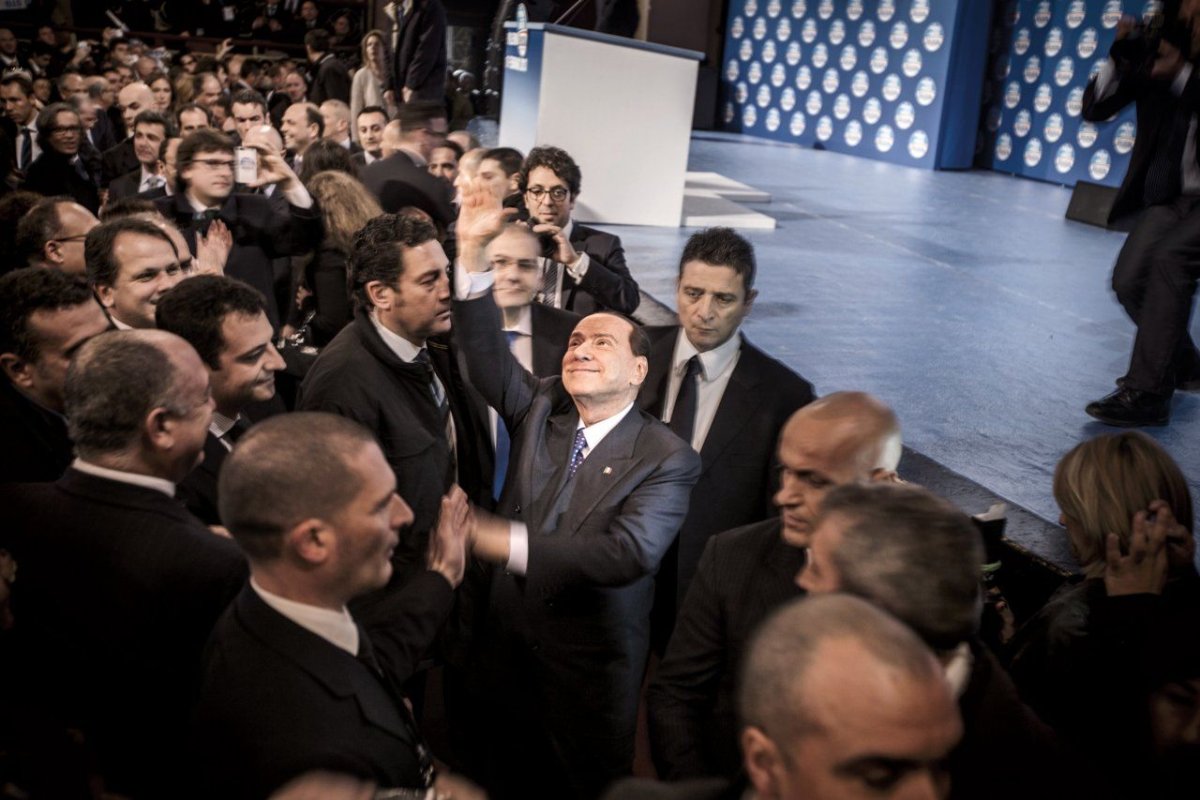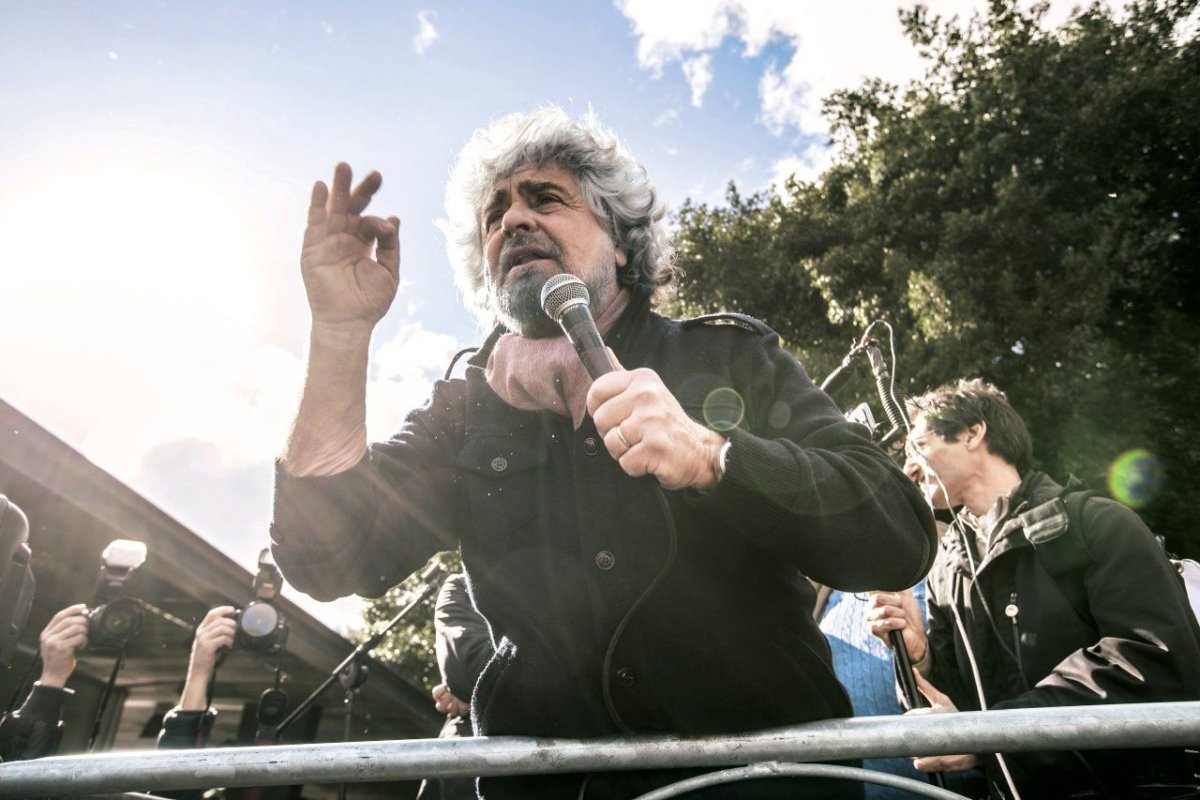
Every Sunday morning, Italian children gather at the famous open-air puppet show, the Teatrino di Pulcinella on the Janiculum Hill high above the historical center of Rome to watch the Italian Punch and Judy equivalents beat each other senseless for no apparent reason.
It isn't easy to match the random silliness of the screaming puppets, but lately Italy's politicians have been doing just that.
On February 24 and 25, Italian voters go to the polls to choose their next leader. But rather than a serious electoral ballot, the list of characters seems drawn from a playbill advertising the theater of the absurd.
And perhaps that explains the apathy of the Italians. With just a few days to go before the election, more than one third of voters say they're still undecided, leading observers to speculate about the likelihood of a runoff election. Italy is rudderless, yet again.
"It comes down to populism versus realism," says Federigo Argentieri, professor of political science at the John Cabot University in Rome. "Few," he adds, "offer great solutions to the problems of this country."
Italy has been without a democratically elected leader since November 2011, when then-prime minister Silvio Berlusconi was forced to resign amid a hurricane of financial and sex scandals. Since then, the 76-year-old billionaire has been convicted of tax evasion and has been fighting charges in a tawdry underage prostitution trial in which he's alleged to have paid a 17-year-old Moroccan belly dancer for sex on no less than 13 occasions. The verdict in that trial will come in the weeks after the election. If convicted, Berlusconi has vowed to appeal.
Berlusconi has campaigned with classic wink-and-nudge insouciance, promising voters everything from free private school for their kids to reimbursement of the pesky property taxes they've had to pay in his absence. Some even speculate that hiring famous footballer Mario Balotelli to his AC Milan club was a ploy to win the soccer vote. The newspaper La Stampa estimates that Balotelli, who will make his AC Milan debut on the first day of voting, is expected to win Berlusconi some 40,000 votes. "Berlusconi's Italy is one where the rules are flexible," says political analyst James Walston, who teaches at the American University of Rome. "Serious or not, Berlusconi appeals to a type of voter he knows well." In the most recent polls, Berlusconi's center-right party, aligned again with their xenophobic separatist frenemies of the Northern League, were projected to win almost a third of the votes.
But Berlusconi is not the only joker on the campaign trail. Comedian Beppe Grillo is the real stooge of this electoral season. His cultlike following is far more threatening to Italy's stability than Berlusconi's gaffe-prone rhetoric. The 64-year-old stand-up comic, who idolizes 17th-century English rebel Guy Fawkes, whose sneering mask adorns Grillo's campaign camper, has won the support of Italy's protest set, who see him as a way into Parliament. No one on his electoral list has ever held a seat in Parliament. Even so, Grillo has managed to attract an impressive following with his Five Star Movement, which is not a political party per se, even though it certainly acts like one. He has mastered the usefulness of social media more than any other candidate on the trail, and his beppegrillo.it blog has the largest online following of any site—political or not—in Italy. Grillo became a pop cult icon when he launched "V-Day" protests in 2007 (the V is for vaffanculo, or f--k off) meant to send a message to corrupt politicians, and the former comedian turns each political rally into a high-intensity stage act in which he plays the role of a psycho evangelist, swearing and screaming the ills of the nation. By the end of his tirades, he is puffed up like a blowfish, red-faced and sweaty, spewing anti-establishment propaganda ad hominem.
On a recent night, about 30,000 people stood in front of Milan's Gothic cathedral to listen to Grillo's rants. "My battle cry to the politicians is to surrender," he screamed. "You have consumed the entire country, the lives of thousands of people. Now you must go home." The crowd screamed in response: "Thieves! Thieves!"
Grillo's political position is neither strictly left nor right wing. Rather, he has plucked populist ideas from both extremes: he is against the euro zone and has vowed to hold a referendum on membership if his list is elected. And his anti-establishment mantra is based on anti-corruption, and he publishes a running tally of parliamentarians with criminal records on his blog.

Grillo himself isn't actually running for a seat but has vowed to stay on the sidelines, meaning he will be guiding his parliamentarians from outside the Parliament. And who would be prime minister in a Five Star Movement victory is anyone's guess. No names have been floated so far. But Grillo is the favorite among young voters, and he is the clear protest vote for Italians who are tired of the status quo. In the last published poll, his nonparty movement took almost 20 percent of the vote. "Grillo sounds more frightening than he is," says Argentieri. "But he does speak for a growing group of disgruntled Italians who cannot be pacified by traditional political parties."
Neither Berlusconi nor Grillo is expected to win the race outright, but either will clearly have enough power to form what will be an awkward opposition to Pier Luigi Bersani, 61, whose center-left party is leading the polls at almost 34 percent. Even though Bersani may win the vote, he is hardly a winning candidate. He is a charmless politician with a serious charisma deficit whose campaign platform has focused on subtle Berlusconi bashing—a tactic that has backfired, as Berlusconi has lobbed more colorful counterattacks back at Bersani. At one point Berlusconi even did a side-splitting impersonation of Bersani—a far more exciting spectacle than anything seen on the Bersani campaign trail.
Even if Bersani wins the vote, analysts agree he will almost surely need to join forces with Mario Monti, Italy's technocratic caretaker prime minister, to have enough power to govern, which could create an uneasy and risky coalition with sacrifices galore to keep both Monti and Nichi Vendola, his unlikely coalition partner from Puglia, on the team.

Monti, a grandfatherly economics professor who recently adopted a dog called "Empathy" for his campaign photos, became Berlusconi's technocratic replacement in November 2011. Within a few short months, he had burnished Italy's credibility on the global stage, making the country a serious partner and not the punchline Berlusconi had made it.
But Berlusconi got his revenge by pulling his parliamentary support during a fiscal vote that sank the professor in December. And while Monti helped Italy appear more grownup to the rest of the world, many Italians don't like his sobriety and seriousness. (Grillo refers to him as "Rigor Montis.") And the tough-love austerity measures and reforms that cost people their businesses and pushed them further into debt didn't exactly endear him to voters.
Like Grillo, Monti is leading a nonpolitical party list of candidates who support his ideals. The most recent poll shows that less than 14 percent of those asked would vote for him. In the unlikely event that his list wins, Monti could be assigned the job as prime minister, though a more likely scenario is for Bersani to give him the Finance Ministry portfolio, which would send a clear message to the markets that austerity is still on the agenda.
Just days away from the general election, the various candidates were pounding piazzas across the nation—promising, cajoling, or winking at the crowd. However absurd the spectacle, the traveling show offered welcome distraction to a people down on their luck.
Uncommon Knowledge
Newsweek is committed to challenging conventional wisdom and finding connections in the search for common ground.
Newsweek is committed to challenging conventional wisdom and finding connections in the search for common ground.
About the writer
To read how Newsweek uses AI as a newsroom tool, Click here.








